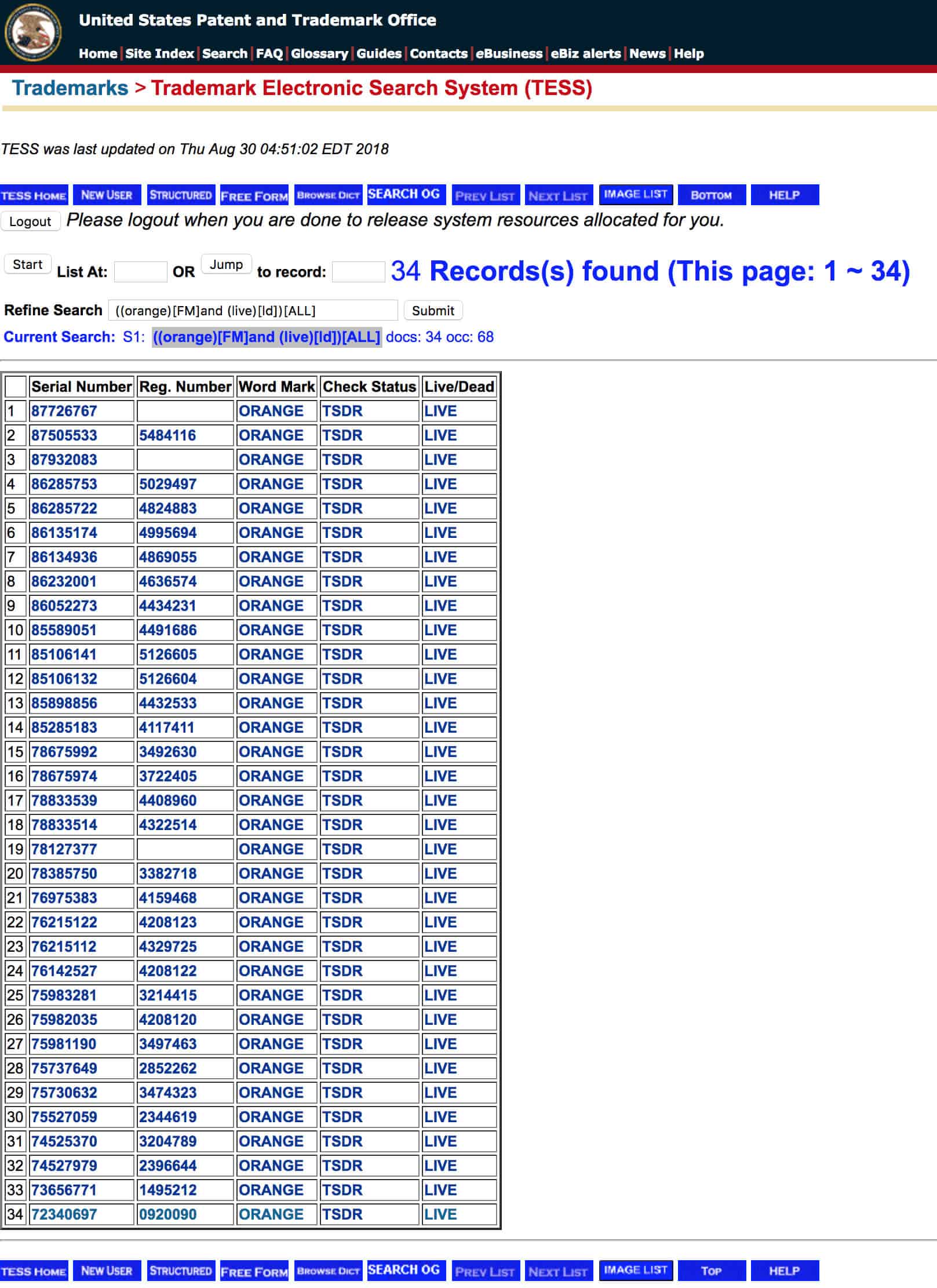I was guitar shopping with a friend of mine last weekend at Emerald City Guitars, and found the inspiration for today’s trademark video. The guitars were much more interesting, for sure, and I have another inspiration for content from my visit, but today an amplifier caught my eye. It was the color orange, and had the mark ORANGE prominently displayed on the front. I wondered, does this company have a registered trademark for the color orange for amplifiers? Also, it was a good opportunity to discuss a common misconception about the use of ordinary words as trademarks.
One of the most common questions I get is “How can people use ordinary words as trademarks? Doesn’t that prevent others from using the word at all?” The short answer is “No.” Remember that anything that distinguishes your goods and services from others’ goods and services can serve as a trademark. This includes ordinary words in common use, like today’s example, ORANGE. Applying the mark ORANGE doesn’t prevent others from uttering the word; that’s a silly but common misconception. What is does prevent others from doing is applying the mark — or one that is confusingly similar — to goods that are “related” and selling them here in the United States.
As you can see from the list below, there are a whole list of ORANGE trademarks for various goods. How can this be? We’ll talk about that in an upcoming video. But let this list of 34 live trademarks assure you that yes, indeed, common words can be used as trademarks for a variety of goods. The goods on which the trademark ORANGE can be used depend on the goods. ORANGE is a good trademark for amplifiers. It distinguishes one company’s goods from another company’s goods, thus functioning as a trademark.
ORANGE is a bad trademark — we call it a “generic” term — for oranges, the fruit. A “generic” mark is one that is the word for the goods and services; it doesn’t distinguish the mark at all; as to oranges, the term “orange” is generic. Generic marks are not registrable as trademarks. Why? Because they are “merely descriptive” of the goods rather than distinguishing the source from which the goods emanate. From a policy standpoint, it’s not allowable either. A trademark gives the owner the exclusive right to use the mark in commerce in conjunction with the listed goods. If we grant one owner the exclusive right to use ORANGE on oranges or on a food cart that sells orange-derived products, then it necessarily denies the right of others to fairly describe the goods that they sell. They are forbidden to say that they sell “oranges.” This is an absurd result, and without the bounds of trademark law. So no, that’s not allowed. APPLE is another example of a popular — and famous! — fruit mark.
I’m on Facebook! “Like” my facebook page, http://link.trademarkdoctor.net/FB to be notified every time I go LIVE. Do you have trademark questions? Message me on the Trademark Doctor Facebook page, and I’ll answer your questions on a future Live video.
Contact Dallas, Texas trademark attorney Angela Langlotz today to get started on a trademark application for your valuable brand.
Trademark Case Study: ORANGE amplifiers posted first on https://trademarkdoctor.wordpress.com


No comments:
Post a Comment